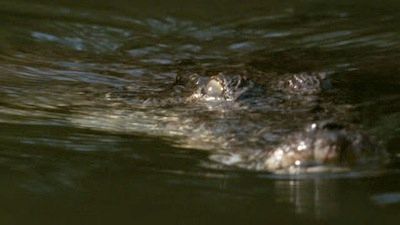Wild Down Under
Island Arks (1x5)
:
This episode begins at Kakadu, a seasonal wetland and representative of the swamps that once stretched from north Australia to New Guinea. The lush tropical forests of New Guinea are home to creatures such as long-beaked echidnas, tree kangaroos and 38 kinds of bird of paradise, as well as richly varied human cultures. Male Raggiana birds of paradise are filmed displaying at a lek and mating. Further east, the submerged tips of extinct volcanoes support colourful reefs. Pygmy seahorses and razorfish use camouflage to avoid detection. Saltwater crocodiles can swim great distances, enabling them to colonise remote volcanic islands. No terrestrial mammals have made it this far, but fruit-eating bats such as the tube-nosed species feast on figs. On Lord Howe Island, the aerial displays of male tropicbirds are filmed, and adult sooty terns regurgitate meals for their chicks. New Caledonia is a remnant of the Australian land mass which broke away 80 million years ago. It has many unique species, especially lizards: the giant gecko is the largest of its kind. New Zealand lies on the edge of the continental land mass, and marine life drawn to its nutrient-rich seas include sperm whales and acrobatic dusky dolphins. On land, keas have colonised the Southern Alps and in the forests, kiwis and wetas occupy ecological niches normally associated with mammals. Introduced species have decimated the native fauna, but many species survive on offshore islands. The kakapo, tui, kaka, Fiordland penguin and sooty shearwater are all shown.
